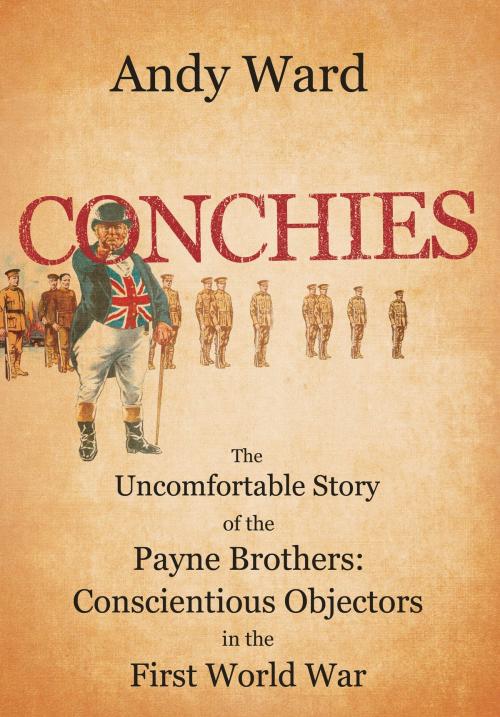| Author: | Andy Ward | ISBN: | 9781784628185 |
| Publisher: | Troubador Publishing Ltd | Publication: | October 12, 2018 |
| Imprint: | Matador | Language: | English |
| Author: | Andy Ward |
| ISBN: | 9781784628185 |
| Publisher: | Troubador Publishing Ltd |
| Publication: | October 12, 2018 |
| Imprint: | Matador |
| Language: | English |
On the centenary of the Great War, we hear and read of valiant and heroic stories. There is another story, one less spoken of. The story of the people who refused to fight for their country. Today, the individuals mentioned in this book would be the focus of internet trolls. In their own day they elicited an equally vehement reaction from their communities. These were the people who refused to fight for their country, and they were known as ‘Conscientious Objectors’. This book provides a remarkable testimony about the experiences of conscientious objectors and their treatment at the hands of the state. It contradicts the received view that these objectors were treated universally brutally by the army, the prison system and the government, and is bound to lead to a modification of the orthodox view. Andy Ward was given access to 300 letters that had been discovered in a local family’s attic. They record a correspondence from 1916 to the end of the war between Leonard and Roland Payne, two brothers who chose to become conscientious objectors, and their friends and family. The letters follow their journey as the authorities attempted to dissuade them from their course of action, through punishment, until finally they were placed in a situation where they could be useful. Conchies is not a work of purely local history. Rather, it is a case study: local history in a national context and national history in a local context. It is also a very human story, treated with balance and thought. It will appeal to those interested in the First World War, civilian experiences of the War, British social history, the evolving nature of public opinion and the ethical and moral issues of conscience.
On the centenary of the Great War, we hear and read of valiant and heroic stories. There is another story, one less spoken of. The story of the people who refused to fight for their country. Today, the individuals mentioned in this book would be the focus of internet trolls. In their own day they elicited an equally vehement reaction from their communities. These were the people who refused to fight for their country, and they were known as ‘Conscientious Objectors’. This book provides a remarkable testimony about the experiences of conscientious objectors and their treatment at the hands of the state. It contradicts the received view that these objectors were treated universally brutally by the army, the prison system and the government, and is bound to lead to a modification of the orthodox view. Andy Ward was given access to 300 letters that had been discovered in a local family’s attic. They record a correspondence from 1916 to the end of the war between Leonard and Roland Payne, two brothers who chose to become conscientious objectors, and their friends and family. The letters follow their journey as the authorities attempted to dissuade them from their course of action, through punishment, until finally they were placed in a situation where they could be useful. Conchies is not a work of purely local history. Rather, it is a case study: local history in a national context and national history in a local context. It is also a very human story, treated with balance and thought. It will appeal to those interested in the First World War, civilian experiences of the War, British social history, the evolving nature of public opinion and the ethical and moral issues of conscience.















